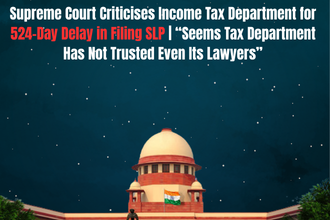Introduction
On the 133rd birth anniversary of Dr. B.R. Ambedkar, Justice B.R. Gavai of the Supreme Court of India delivered a passionate and insightful speech at an event hosted by the National Commission for Scheduled Castes (NCSC). Lauding Dr. Ambedkar as the “greatest Indian ever born,” Justice Gavai emphasized the enduring relevance of Ambedkar’s vision, his role in shaping India’s constitutional framework, and the need for deeper engagement with the principle of constitutional morality in both the judiciary and society at large.
Ambedkar: A Visionary Beyond His Time
Justice Gavai began his address by highlighting the multifaceted brilliance of Dr. B.R. Ambedkar. He noted that Ambedkar was not only a constitution-maker but also a prolific economist, social reformer, and advocate for women’s rights. Describing him as “far ahead of his time,” Justice Gavai pointed out how Ambedkar was a rare thinker who combined academic excellence with a deep commitment to uplifting marginalized communities.
He noted that Ambedkar was the first Indian to pursue a Ph.D. in economics abroad and that his scholarly work on subjects like provincial finance and the rupee’s stability demonstrated his intellectual depth. “People only remember Babasaheb as the drafter of the Constitution,” Justice Gavai said, “but he was so much more. His economic and legal contributions are yet to be fully appreciated.”
Constitutional Morality Over Popular Morality
A central theme of Justice Gavai’s speech was the concept of constitutional morality, a principle Ambedkar strongly advocated. Gavai stressed that in a diverse and democratic nation like India, it is constitutional morality—not popular morality—that must prevail.
He quoted Ambedkar’s Constituent Assembly speech, where the architect of the Constitution warned that India must choose between “the road of Bhakti or the road of constitutional morality.” Justice Gavai said, “What Dr. Ambedkar warned us of in 1949 is being played out in today’s time. When institutions weaken, constitutional morality must be our guiding light.”
He further elaborated that constitutional morality is not just the responsibility of the courts but of every individual, including politicians, bureaucrats, and citizens. The decline in respect for institutions and erosion of democratic values, he observed, could be countered by recommitting to Ambedkar’s vision.
Ambedkar’s Advocacy for Social Justice
Justice Gavai, himself only the second Dalit judge to be appointed to the Supreme Court, said that Ambedkar’s lifelong struggle for the rights of Dalits, Adivasis, and other marginalized groups remains a beacon of hope. He noted that Ambedkar’s call for Annihilation of Caste remains more relevant than ever, especially in a time when caste-based violence and discrimination persist.
“Dr. Ambedkar gave voice to millions who were denied dignity and rights for centuries,” Gavai said. “He was not anti-Hindu, as some claim. He was anti-inequality. His battle was against injustice, not any particular religion.”
Justice Gavai reminded the audience that Ambedkar championed the cause of women and emphasized their education, economic independence, and political participation long before it became part of mainstream discourse. “If Ambedkar had his way, we would have had gender justice much earlier in our country,” he remarked.
Dr. Ambedkar’s Enduring Legacy
Highlighting Ambedkar’s lifelong commitment to the cause of justice, equality, and fraternity, Justice Gavai argued that Ambedkar’s ideals should not be limited to ceremonial remembrances. “Lighting a lamp or garlanding his statue once a year is not enough,” he said. “If we truly want to honor Ambedkar, we must uphold the Constitution in letter and spirit.”
He pointed to the alarming rise in hate speech, caste-based atrocities, and suppression of dissent, warning that such trends are antithetical to the principles Ambedkar stood for. Gavai also called for greater sensitivity within the judiciary when dealing with issues concerning the marginalized.
Justice Gavai underscored the fact that Ambedkar’s vision of India was not just political but moral and ethical. “He imagined a society where liberty, equality, and fraternity are not just words in the Preamble, but lived realities,” he said.
The Role of the Judiciary
Justice Gavai stressed the crucial role that the judiciary must play in protecting the Constitution and the rights of the underprivileged. He cited several Supreme Court judgments that have relied on the doctrine of constitutional morality to strike down unjust laws or practices.
In recent years, the Supreme Court has invoked Ambedkar’s ideals in cases related to LGBTQIA+ rights, freedom of speech, and religious freedoms. Justice Gavai noted that it is not enough to refer to Ambedkar in judgments; his ideas must shape the reasoning behind them.
He also called for the inclusion of Ambedkar’s writings and speeches in the legal curriculum and for greater representation of SC/ST communities in the higher judiciary and academia.
Conclusion: A Call to Action
Justice B.R. Gavai’s powerful tribute to Dr. B.R. Ambedkar was more than ceremonial—it was a clarion call for action. In an era where democratic institutions are being tested, his speech served as a reminder that Ambedkar’s ideas are not relics of the past but blueprints for a more just and equitable future.
By invoking constitutional morality, social justice, and institutional accountability, Justice Gavai reaffirmed Ambedkar’s place not only as the Father of the Constitution but as the moral compass of modern India. His closing words summed it up best: “Babasaheb was not just a leader of the Dalits; he was the conscience keeper of the nation.”


